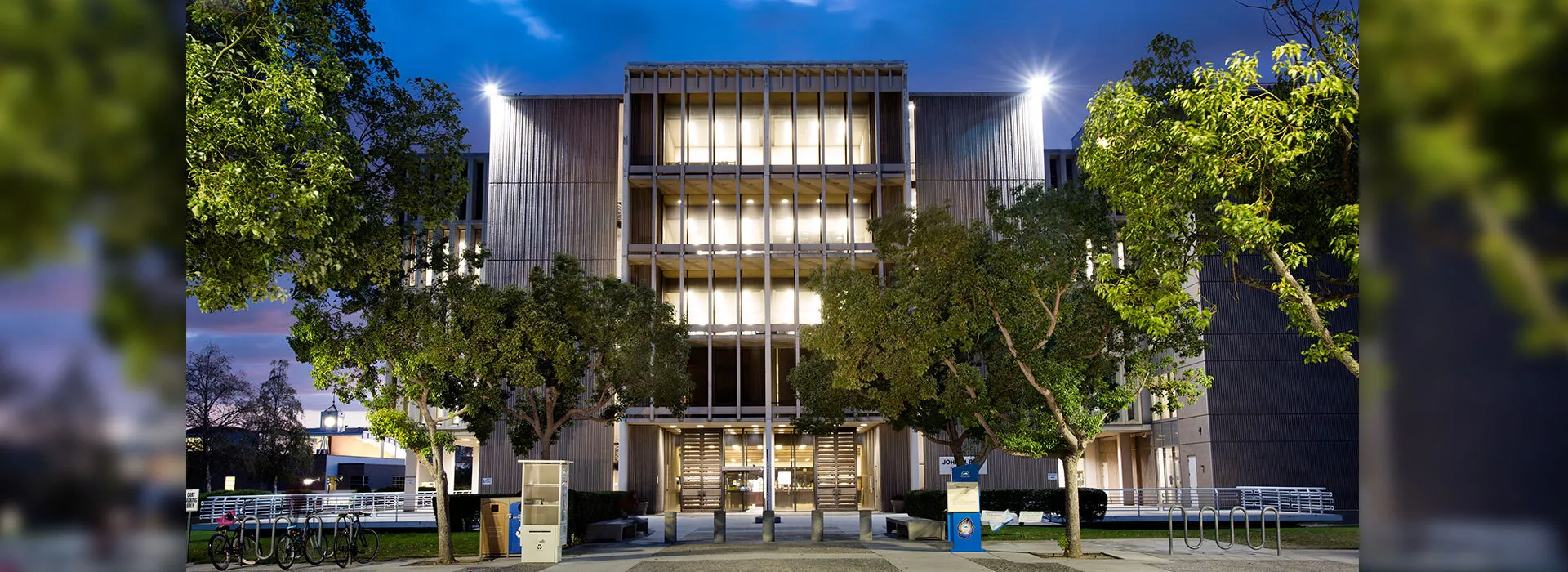
Maria Barragan-Arreguin felt anxiety sitting in the U.S. Capitol listening to President Donald Trump’s address to a joint session of Congress on Feb. 28.
Upon her return to Cal State San Bernardino, she reflected on the trip, and decided to stay positive, even as policies that can potentially be harmful to undocumented immigrants are being discussed in Washington, D.C.
“Regardless of the political climate, students have to stay positive and informed,” said Barragan-Arreguin, coordinator of CSUSB’s DREAMers Resource and Success Center. “Students must remember the struggles and the hardships our parents have overcome for us to be here today. Policies have changed; we didn’t always have the opportunity to obtain a driver’s license or receive financial aid to be able attend school, or any other that policy that benefits our undocumented student population. Knowing what my parents, and my students, have gone through, has serve as a motivation to continue advocating and assisting my community.”
Barragan-Arreguin attended the joint session as the guest of U.S. Rep. Pete Aguilar (D-San Bernardino), a strong supporter of the Deferred Action for Childhood Arrivals, a program implemented under Obama’s administration in 2012. DACA was designed for the children who came to the U.S, before they turned 16, with their undocumented immigrant parents; Barragan-Arreguin is a DACA recipient.
“Maria, and the Dreamers like her in our community, are a shining light for our region and nation,” Aguilar said in a statement before the joint session. “The United States was founded by immigrants and every chapter of our history has been shaped by the contributions of those who came to our shores in search of opportunity.
“We cannot and will not turn our backs on the immigrant community,” he said. “I stand with Maria and the millions like her who deserve a pathway to citizenship.”
As a candidate and as president, Trump has vowed to build a wall along the U.S.-Mexico border, sharply curb and tighten immigration laws, and deport undocumented immigrants. During the campaign he called DACA illegal, although he has since softened his tone.
Despite an apparent change in attitude towards DACA recipients, many young people, including Barragan-Arreguin, remain cautious. And that attitude of caution was with her in the Capitol’s chamber the night of the speech.
“It felt surreal being there,” she said. “It was different from what you see on the news, or when you see the live broadcast. You’re present in that moment. I couldn’t believe I was there. The fact that Trump had a lot of negative comments toward the immigrant community, and the fact that I, an undocumented immigrant, was there made me feel nervous. … By the end of the speech, I was drained. I just wanted to return to my hotel room and sleep.”
Aguilar, she said, seemed to know what she was feeling.
“He asked me how I was feeling, and I explained to him that I was feeling a lot of anxiety due to the audience’s reaction to what (Trump) had said,” Barragan-Arreguin said. “As an activist, I know the power people can have to change policies that can assist or oppress others. Now imagine, If there are this many people who support Trump, what harm can they can cause to my community.
“One of the things that the congressman said was, ‘No matter what happens, I’m here to help you and your students and know that you can always count on us,’” she said. “His words made me feel at ease. Knowing that (Aguilar) is such an important person in our community, and knowing that we have his support, really made a positive impact on the way I was feeling.”
Upon her return to California, one of the things she decided to do for the DREAMers Center was to hold additional “healing circles,” sessions in which students can express themselves and articulate their fears and hopes as a coping mechanism.
“After attending the joint session, I realize that I’m not completely healed from the fact that (Trump) is now our president, and that he has all this rancor towards our community,” Barragan-Arreguin said. “Hearing Trump’s speech and seeing him in person made me wonder, ‘How many of our students still need comfort?’
“As activists, we are always on fight mode. We want to fight back, speak up and protect our communities. Unfortunately, we don’t make time to take care of our mental health,” she said. “I used to always have that ‘I-have-to-fight-back’ mentality. Now it’s, ‘Let me comprehend the situation, then I’ll react accordingly.’ Which has been a more effective process.”
And along with that is hope.
“We also have to stay positive,” Barragan-Arreguin said. “As I had mentioned, people can be powerful. Therefore, if our communities come together, we can change policies, we can fight back to change policies that oppress us. For instance, our communities have stopped deportations from happening, and we have opened the doors to resources for the undocumented people. If we continue our advocacy efforts, there’s hope.”